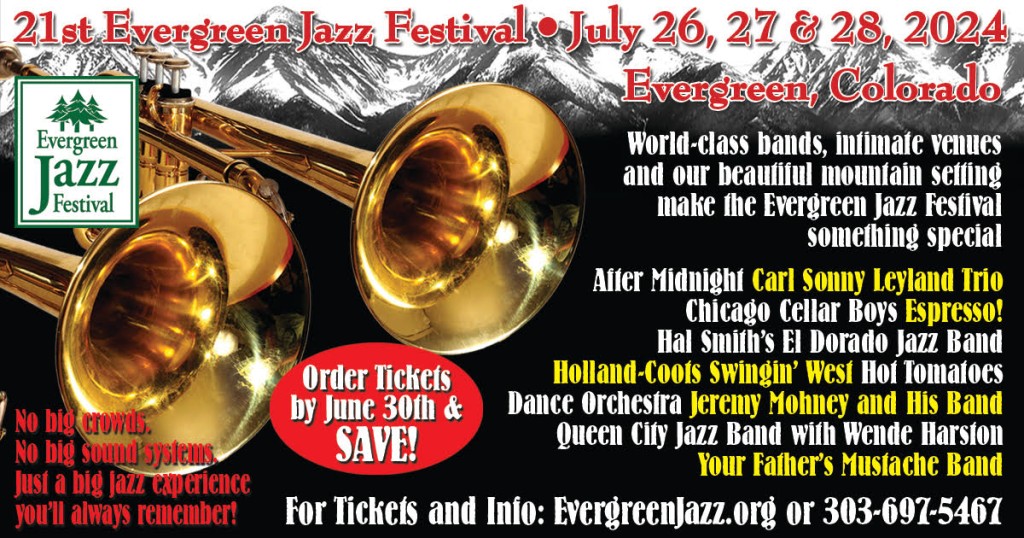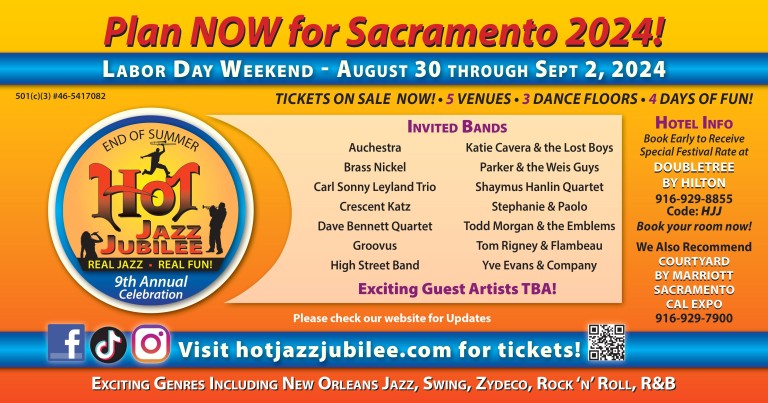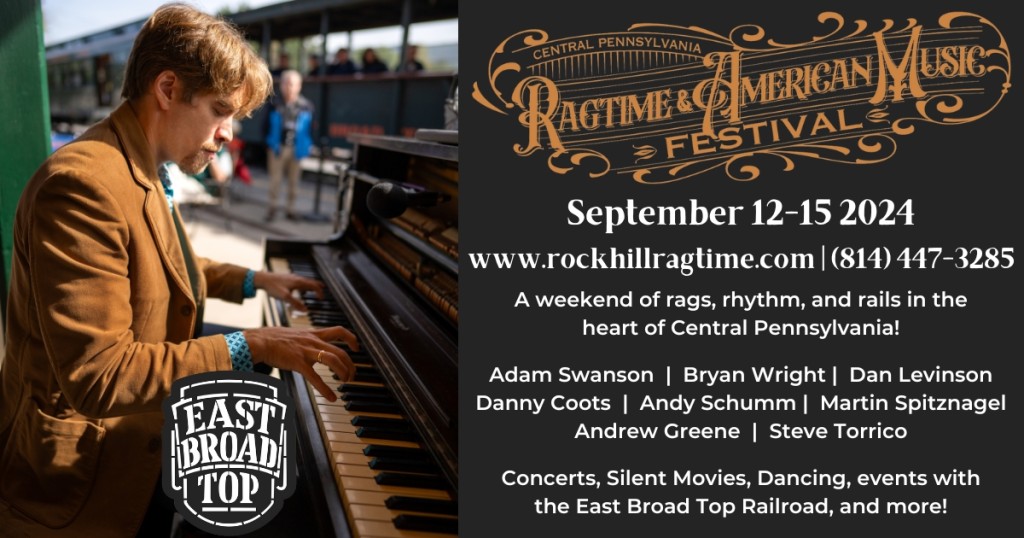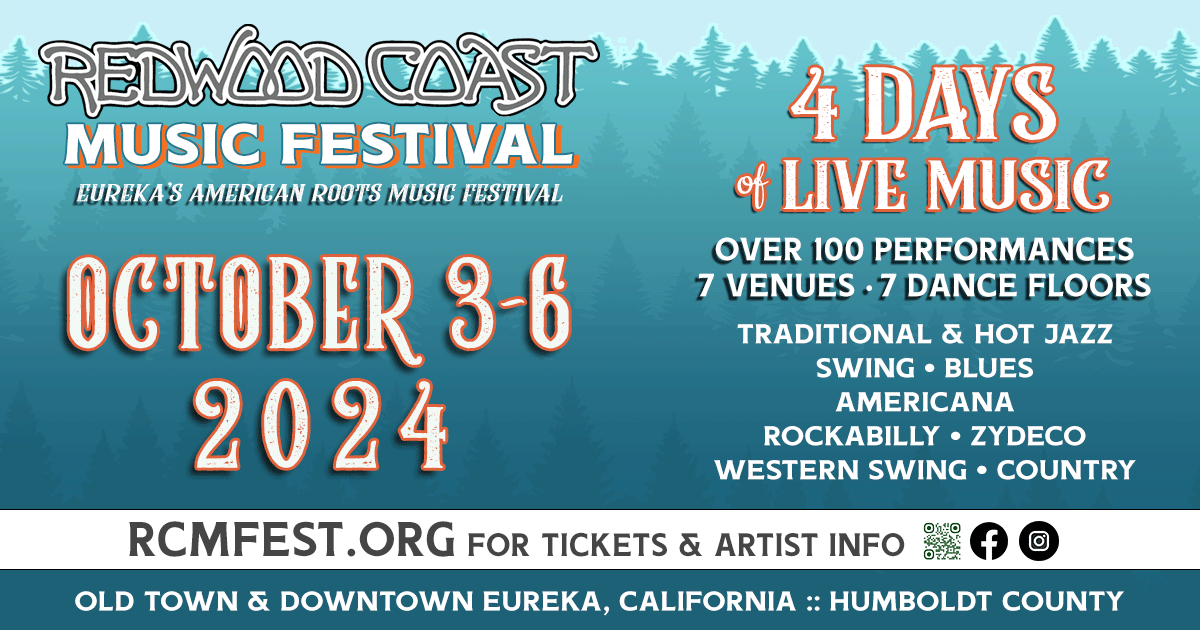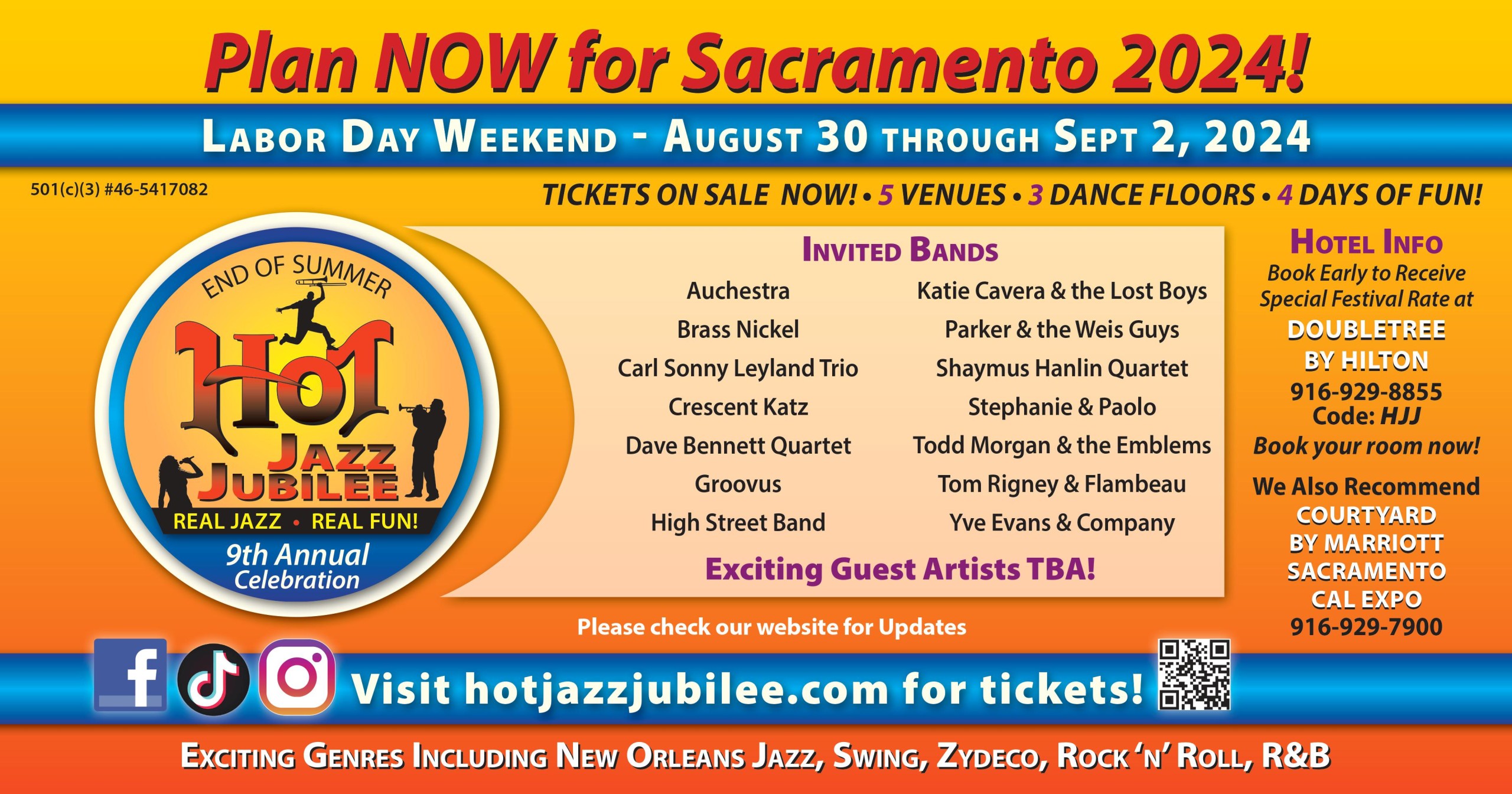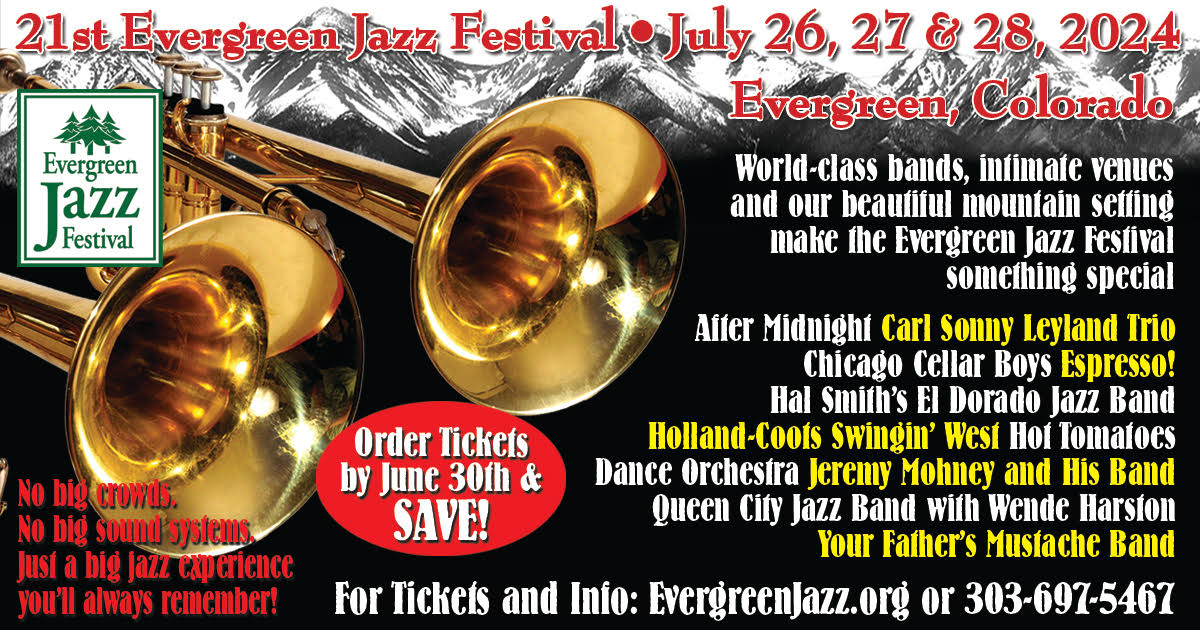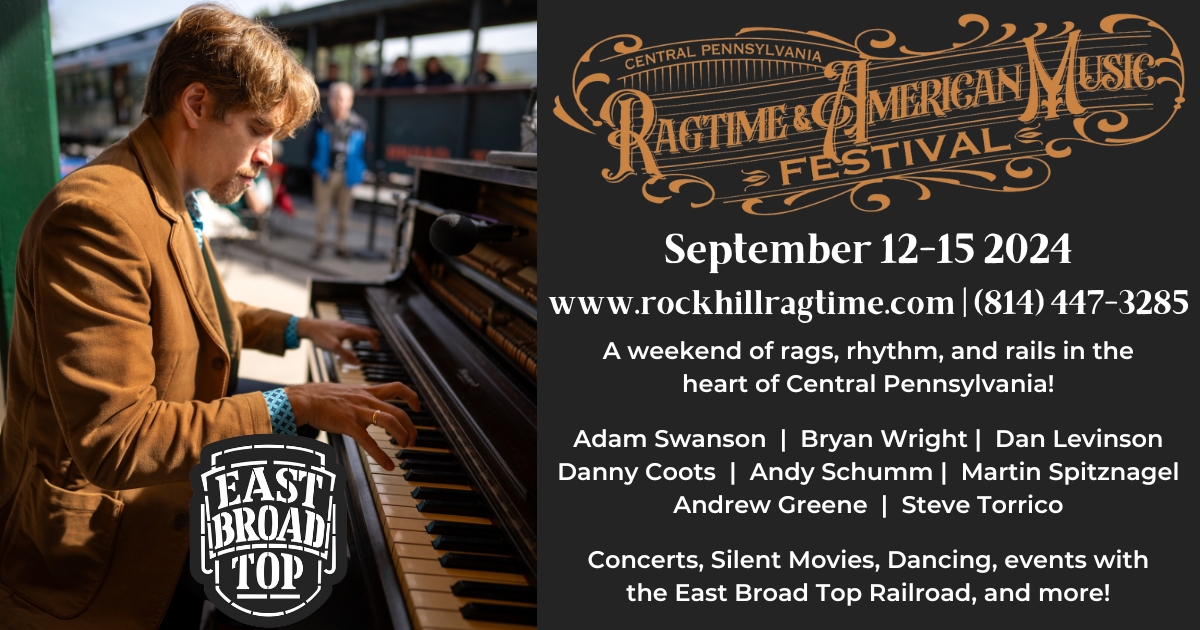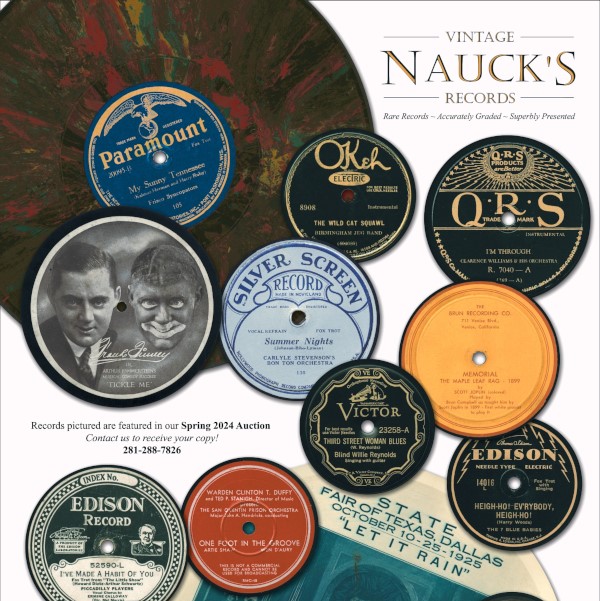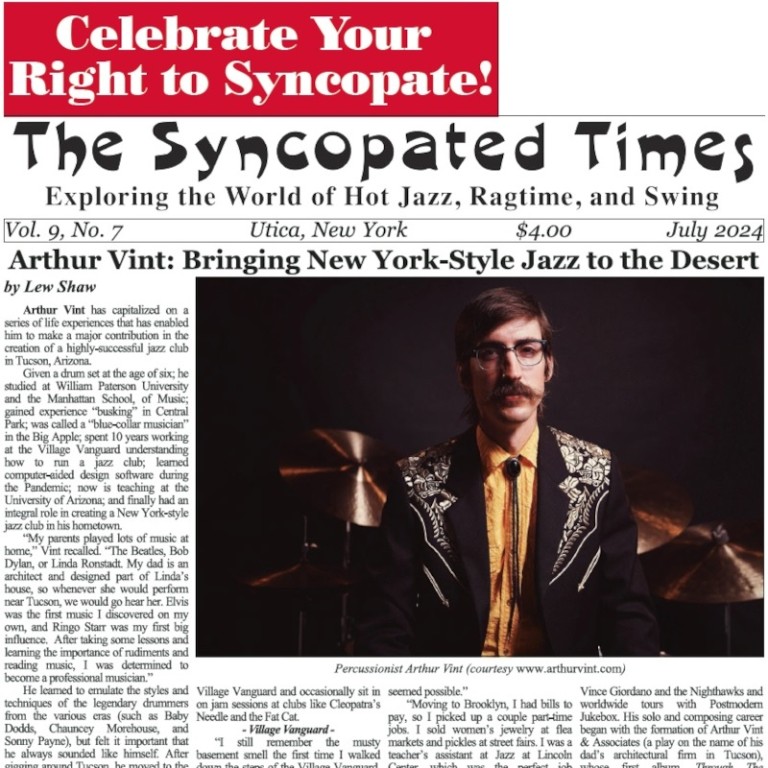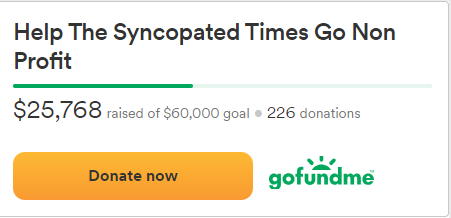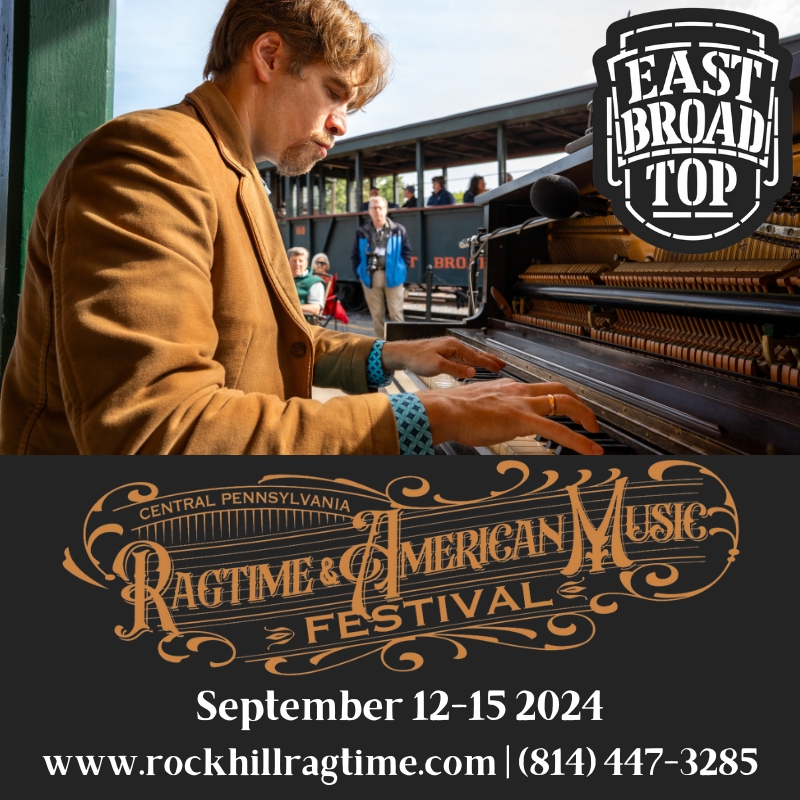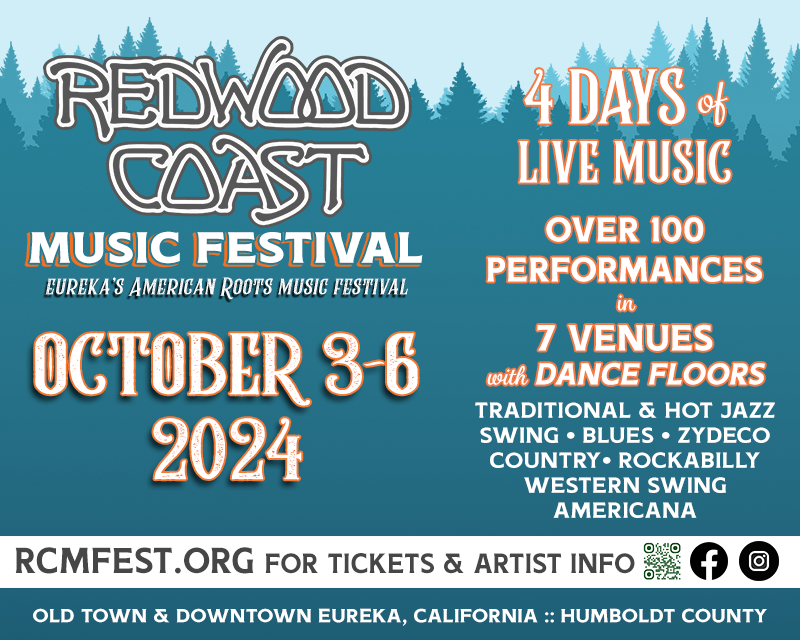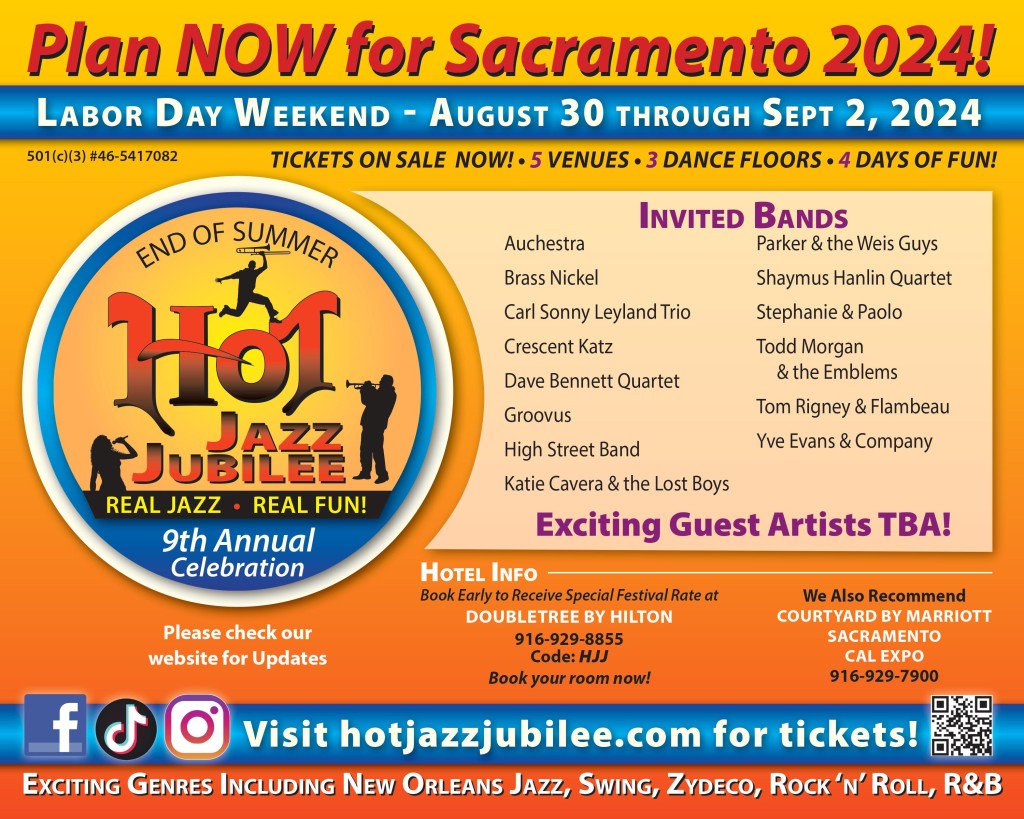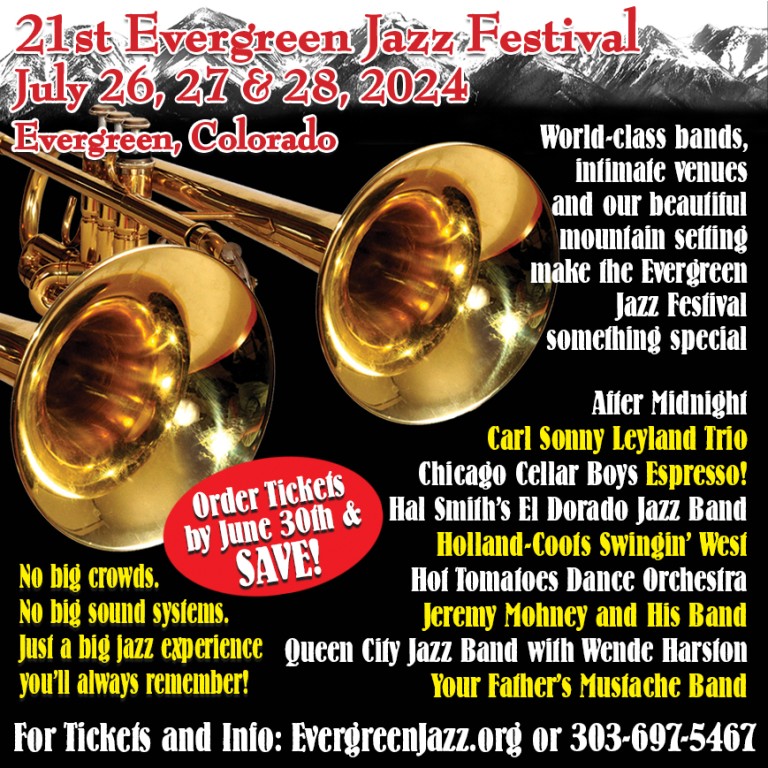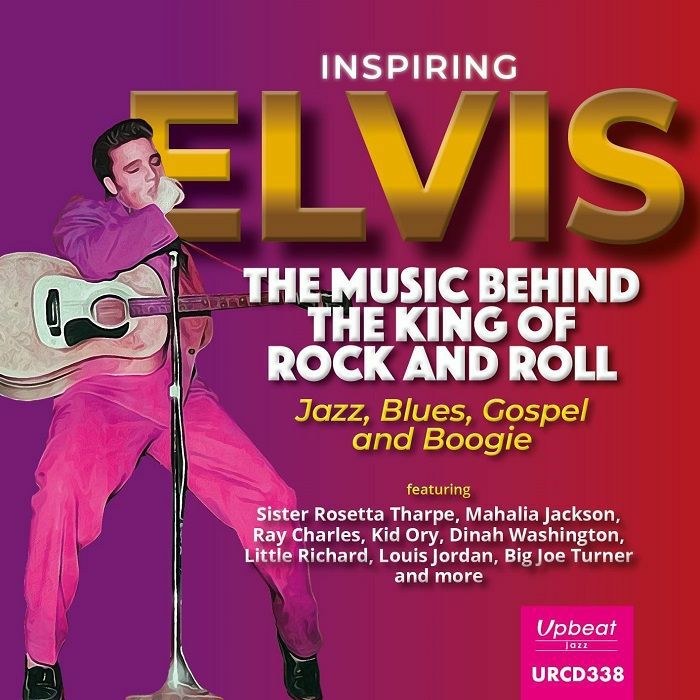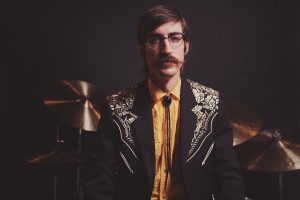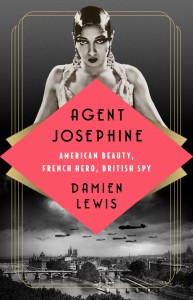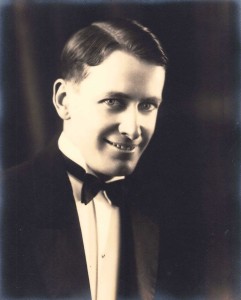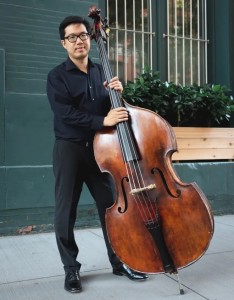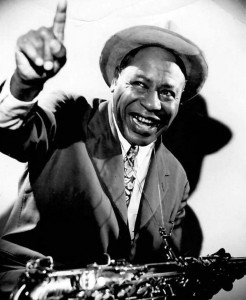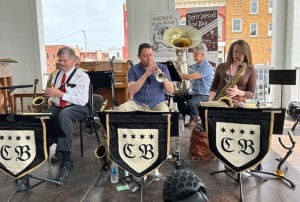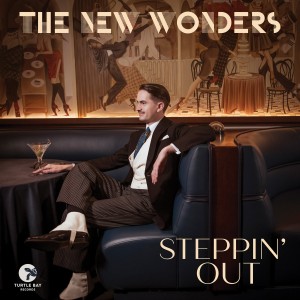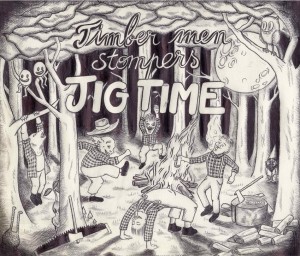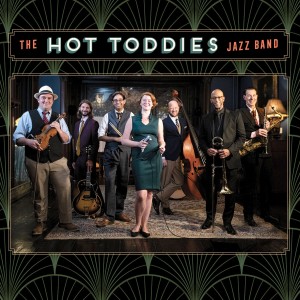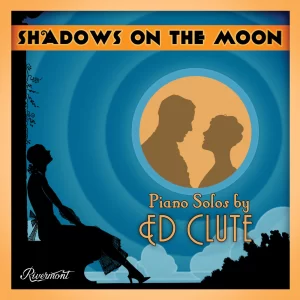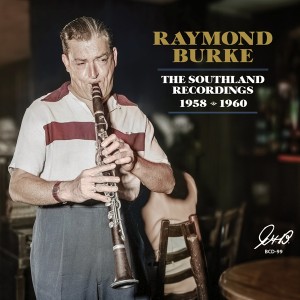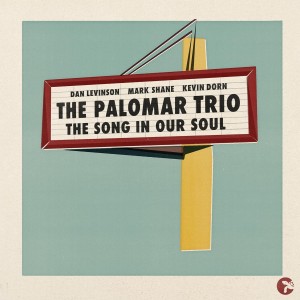For some time now I have been wanting to write about the prodigious work of Bill Edwards of Ashburn, Virginia. (However, I learned he had at least two massive books planned for publication, so I opted to wait for their arrival. Bill already had a beautiful book on E.T. Paull: America’s Other March King (2011), so I reasoned it would be worth the wait.
Well, 2023 is the year of Bill’s Honky-Tonk Piano: The Study of the First Ragtime Revival of the 1950s. As expected, it is a prodigious work, thoroughly covering the topics through his familiar, summative articles about the people and institutions involved. But, first some personal comments about Bill’s career and his most ambitious effort, his RagPiano.com website.
I first became aware of Bill Edwards while surfing the web for ragtime material back in the late nineteen-nineties and was amazed by what I found. It has been even more amazing to follow his website and watch it evolve into a nearly definitive on-line encyclopedia of ragtime information. (Bill began ragpiano.com in June of 1997 and it has grown to be a most valuable research resource. (The amount of information Bill has amassed on the site is phenomenal and it is available free of charge. He only asks for proper professional acknowledgment.)
Bill’s professional on-line biography is a delight to read. As a five-year-old child. gifted with rare musical abilities, he discovered ragtime and learned to play the piano at age seven. He had a large ragtime repertoire by age 14. An early engagement in his career was at the famous Diamond Belle Saloon in Durango Colorado, and he played for a time at the Old Fish Market in old-town Alexandria, Virginia. He still plays a Durango gig for a few days each summer.
From its beginning, Bill has been an annual participant in the World Championship Old-Time Piano Playing Contest that began in Decatur, Illinois, and is now held in Oxford, Mississippi. He won the contest once and usually places in the top five. He is featured in The Entertainers, a 2012 documentary that traces the contest through six participants’ experiences.
He has played in ragtime and jazz festivals all over the country and assisted many event organizers with their technical challenges. He is currently the Symposium Director for the Scott Joplin Ragtime Festival, serves on the Foundation Board, and he provides invaluable technical support and beautiful audio-visual backgrounds for the concert programs. He has been a church organist and is active in the Northern Virginia Ragtime Society. Finally, he is an avid collector of ragtime ephemera (original sheet music and recordings, etc.), movie documents, and anything associated with the ragtime era.
Bill is a prolific recording artist with over 40 CDs. His more recent recordings are available on his website. Bill records and markets his own CDs through his Siggnal Sounds and he has hundreds of compositions on his ragpiano.com website.
Even with his avocational projects occupying so much of his time and talent, his vocation is as an accomplished software developer currently working under a contract with the VA Administration.
It is nearly impossible to document all of Bill’s achievements, so I’ll generalize by lumping the rest between his performances at Kennedy Center and his work as an Artist in Residence for Sedalia, Missouri, public schools. However, I must mention his Outstanding Achievement award presented by the Scott Joplin International Ragtime Foundation in 2016. This prestigious award acknowledged his vast contributions to American popular culture and entertainment.
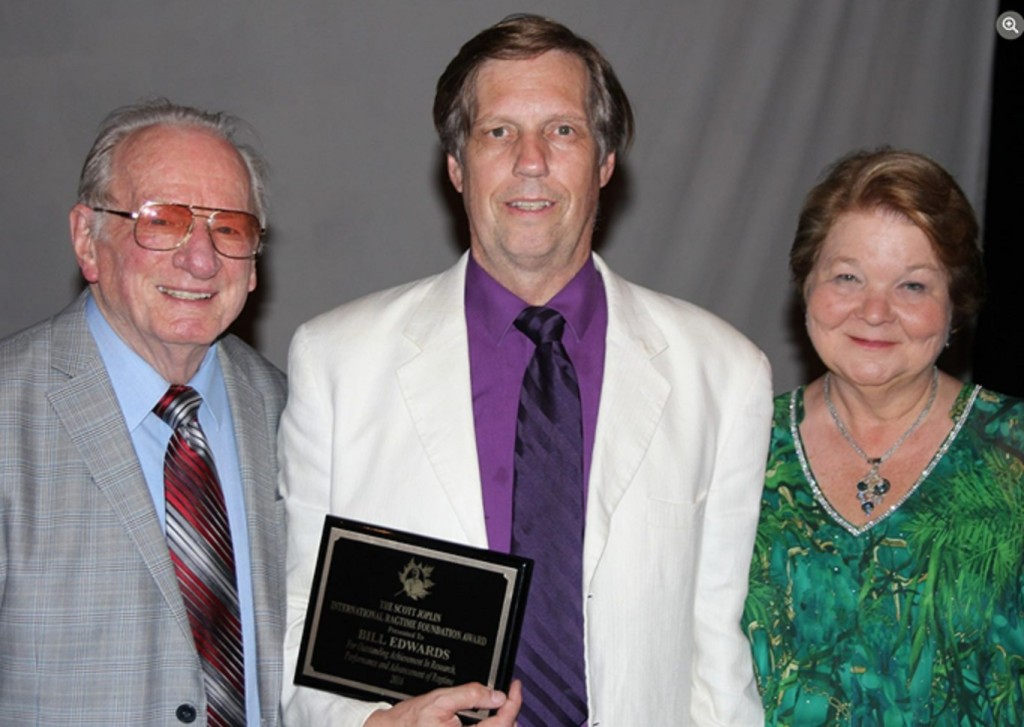
A delightful aspect of Bill’s performances is the frequent presence of his wife, Pamela. She not only accompanies him on most of his performance trips, the couple post frequent accounts of their hiking adventures, often in an area near a venue Bill was playing. Pamela is always there to help Bill or just be there for loving support and she is perhaps his greatest publicist.
Bill is in his 60s when many people are planning to retire. However, it seems he is more active than ever with great plans for the future. This brings me to his latest book and his other work still in progress. (Bill’s website contains a searchable encyclopedia of material on the composers and performers and his new book, available from Amazon. details the first 1950s ragtime revival period. It reads as a chronological narrative of the decade with biographies inserted appropriately along with many illustrations and charts.
The narrative begins with a nice ragtime background from the 1890s to World War I. He then follows the way various derivative forms evolved until what he identifies as “the resurrection of ragtime” by performers that had held on to the music during their early careers, like Wally Rose, Lu Waters, and the Yerba Buena Jazz Band. Bill also emphasizes the role of technology, echoing Max Morath’s favorite mantra, “technology drives the entertainment industry.”
Next in the manner of Fred Hoeptner’s fine study of the word origin of ragtime, Edwards provides an etymology of the term “Honky Tonk,” tracing it from when it referred to a place of probably swarthy reputation, to a sound associated with syncopation and the modification of a less than fine piano. He then follows the development of Honky Tonk through its various waves in the decade of the 1950s.
Bill has certainly done the research as evidenced by his extensive appendices including a listing of nearly four hundred Honky Tonk albums from the 1950s and 1960s, a list of artist pseudonyms, a lengthy bibliography, an index of referenced tunes, and a good general index. Bill’s book filled in a lot of gaps in my very limited knowledge of this musical era.
You can purchase a copy on Amazon.
Bill’s other book project is nearing completion after ten years of research. (It will cover the significant group of women composers of the first ragtime era.)
